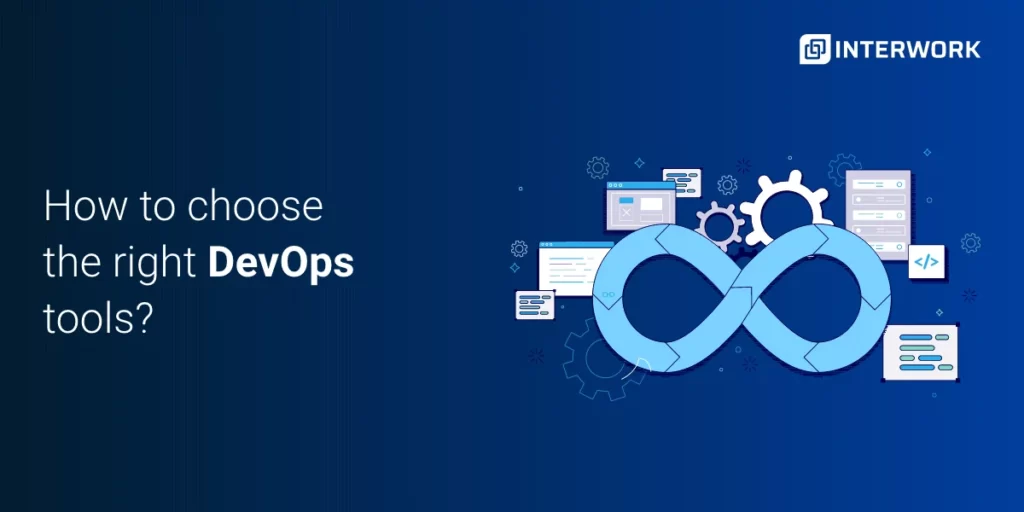How IoT and 5G Are Shaping Automotive Technology
The car manufacturing sector is altering the major trend in…

When you are concerned about what DevOps is or you are required to adopt it in your organization, then you can get the answer right here. When the team of professionals from the development and operations department collaborates and contributes towards the complete cycle from design to support, this practice is known as DevOps.
This practice has recently been adopted in businesses and signifies the advancements and changes the business is adopting at a rapid pace. DevOps Services bring a change and businesses that are sceptical about changes do not adopt it in their cycle. But those who do, are not sure about which to choose from some of the best DevOps tools.
So, how do we decide?
About 90% of the tools available help to automate the entire software development cycle to delivery. It is not that difficult to shortlist that one miracle worker that is going to take your business to higher places.
Some of the best and highly popular DevOps tools in the market are Docker, Ansible, Git, Puppet, Chef, Jenkins, Nagios, and Splunk. These tools have been loved by many businesses today for all their DevOps processes.
To find that perfect tool out of the many different tools of DevOps, you need the one that is capable of managing all the different phases of the cycle. The phases include planning, building, rigorous integration, deployment, operation, and repeated feedback. Let us discuss each in detail to understand how the criteria work to help you choose.
Think about it practically, the tool that can help you learn about the user requirements more efficiently and quickly, is a great tool to help you in the planning phase. That tool must follow sprint planning methodology which is also the concept of Agile Methodology. In this, the product owner calls for a team and stakeholder meeting to discuss the expected output and relevant acceptance criteria.
The best DevOps tool would be the one that consists of all the features that let the team members share their views, comment on existing views, share more goals, ideas, and strategies, access ports, contribute to the journey of the product, and even discuss requirements.
The DevOps Development process involves coding, which is one of the most crucial sections. The most beneficial system is where a tool provides the virtual coding environment for the benefit of the coders. This will increase their efficiency and help them build and manage their versions of codes more effectively. This will be great in the case of trying out and finding the best code to go with that reaches closest to the acceptance criteria of the client.
Modular applications are much more reliable and easier to maintain. Through DevOps tools, this is possible. Some tools exist that provide a collaborative real-time coding environment. This enables multiple users to edit the code together making the work move on even more quickly.
This is a process also known as continuous integration, that enables developers to push their code on the shared repository every day where it is tested repeatedly. This way in-between the development process, the testing procedure finds the bugs at an early stage. This ensures that the cost of testing is not too high for the project. It also assures the team that every step has been tested thoroughly before moving on to the next step leading to assurance that the product would come out to be accurate at the time of deployment. Only the best tool can help the DevOps team achieve that.
It is difficult for all the team to collaborate their efforts if every step is scattered on different platforms. So, the DevOps tool that encapsulates everything from changes, testing, and deployment into one platform, is the best one to choose. Such tools also provide a dashboard to summarize the efforts all in one view when integrated with the repository. This is the best way to highlight the key points of the process and code.
It is necessary to be able to communicate with the team members quickly to enable a rapid issue-resolving process. For this, some of the best group chat options are available that can be integrated with the tool. This ensures there are no communication gaps and as soon as the issue arises, it is communicated to the relevant person immediately. This is done because at this stage we are enabling the processes of server and application performance monitoring through automation and the best DevOps implementation tools can help with that.
Nothing is more important than the feedback of the client at every stage. This gets you closer to the result and acceptance criteria. But are you capturing the feedback properly? Some great tools can integrate the group chat functionality with the Client Survey section. This also includes real-time feedback from different communication platforms.
Since there are multiple phases and different DevOps tools specific to each, it is no wonder there is confusion about which to choose. We, at Interwork, believe in making the right choice with the right guidance. With our DevOps Consulting Services, you can discuss the possibilities of what is the best tool for your business. In crux, the purpose of the DevOps tool is to ensure that the complete life cycle of a product is reduced while making it faster, improving, and establishing cross and internal communication with the team.
Reach out to us to know more and get help in selecting your helper.